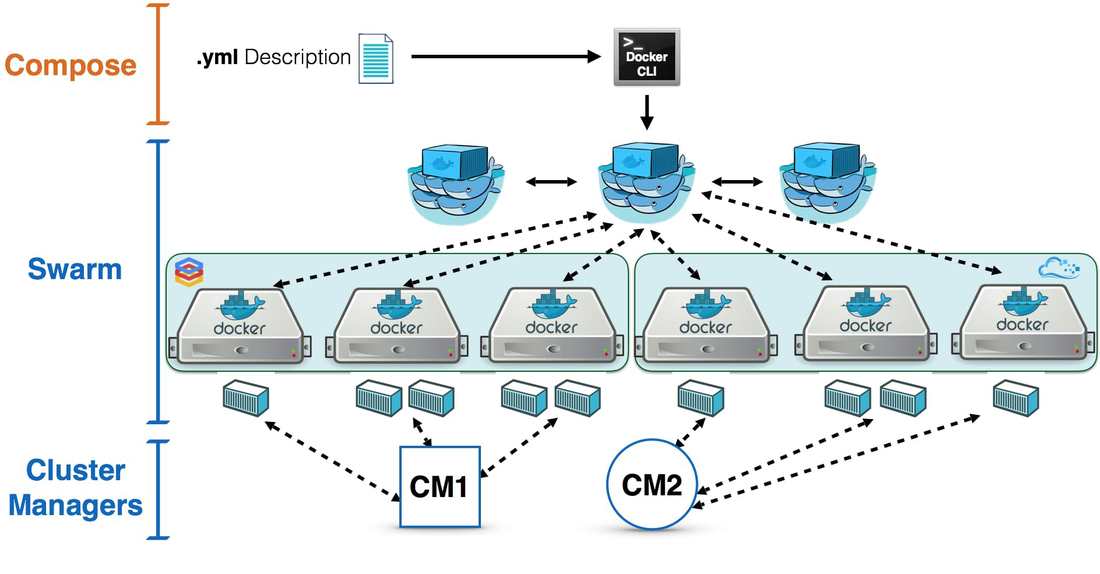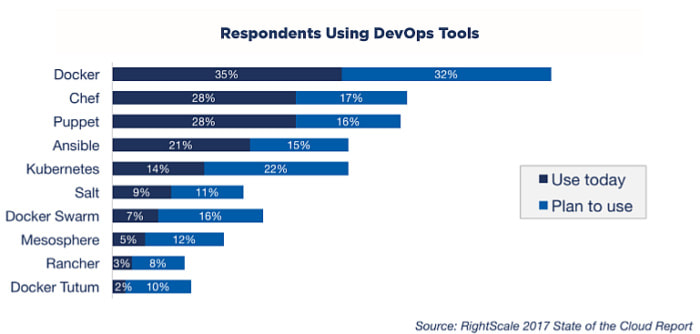Menu
21 best orchestration tools for MSPs |
|
Whoever said, “It’s the journey, not the destination” never had to manage the complete transformation of a complex information-system infrastructure from physical, on-premises servers to virtual, cloud-based servers. That’s a journey that will challenge the rosy disposition of even the most optimistic of IT managers.
“Orchestration” is the perfect word to describe the task presented to system administrators charged with keeping the diverse components of today’s hybrid networks running. The operation needs to go beyond functioning “well enough.” When it comes to keeping your company competitive, “good enough” just doesn’t cut it. Like a world-class symphony orchestra, the many “instruments” that comprise modern IT systems need to be fine-tuned so every note rings true. The only way to coordinate the diverse components of the hybrid cloud networks that dominate today’s IT landscape is by using orchestration tools. As TechTarget’s David Linthicum writes, “trying to use a legacy IT orchestration tool for hybrid cloud -- where well-defined APIs are a must -- typically won't work.” You need orchestration tools that are built specifically for the cloud, but frequently the tools must also work with existing in-house data resources. This often means having to use two distinct orchestration tools, which adds complexity and invites confusion to a process (cloud tool selection) that is already plenty complicated. Even worse, attempting to apply the new toolset to existing systems can prevent the legacy assets from working effectively with cloud apps and data. Here’s a mini-buyer’s guide to help you sort through your orchestration-tool options. The open-source platform mainstays As DevOpsCube writes, complex application architectures require more efficient resource management than is available from open-source orchestration tools out of the box. An ecosystem of specialty cloud-management tools has developed around open-source platforms. In the beginning, there were Docker Swarm and Mesosphere (created by Twitter and used by other big-name web services), two open-source orchestration tools designed to work hand-in-hand. The premise is that you start your container orchestration with Swarm and then “swap in” Mesosphere when you need to go to production at scale, according to Mesosphere’s Matt Trifiro. Mesosphere Marathon is designed specifically to facilitate the conversion of legacy apps to container workloads. The system works with nearly any existing application, whether JVM-based, a Ruby script, or a simple Bash shell script. As with all cloud-orchestration tools, the three key characteristics of the Docker Swarm/Mesosphere pairing are high availability, fault tolerance, and self-healing.  Docker Swarm’s production plan is intended to assist in planning, deploying, and managing clusters in business-critical production environments. Source: DevOpsCube Docker Swarm’s production plan is intended to assist in planning, deploying, and managing clusters in business-critical production environments. Source: DevOpsCube
Kubernetes is an open-source orchestration tool managed by Google that features a first-rate scheduler and resource manager. Kubernetes features are a robust toolset and is noted for being easy to learn. However, it’s also noted for being poorly documented. Still, few orchestration managers can boast the customer base and extensive testing Kubernetes offers.
Other open-source orchestration contenders are Nomad and Cloudify. Top orchestration specialty tools If popularity were all that mattered, the short list of orchestration tools would feature only three products: Chef, Puppet, and Ansible. RightScale’s 2017 State of the Cloud Report places the tools second, third, and fourth – behind only Docker – as the most popular devops tools in use today and tomorrow.  While Docker remains the king of the devops tools, the popularity of competing solutions shows no signs of abating. Source: InfoWorld While Docker remains the king of the devops tools, the popularity of competing solutions shows no signs of abating. Source: InfoWorld
Despite their enduring popularity, you’d be doing your organization a disservice if you limited your investigation of orchestration tools to the industry leaders. Morpheus Data’s Jared McKinney provides a first-rate primer on your orchestration-tool options in a recently updated Quora post.
In addition to the Morpheus cloud application management system, McKinney recommends a diverse collection of orchestration managers for a range of hybrid-cloud implementations. Among his favorites are stalwarts such as RightScale, Scalr, VMware, and IBM Cloud Orchestrator. Also profiled by McKinney are lesser-known winners, including Avni, which offers Layers 4-7 network functionality in addition to cloud management to prevent being locked into any single cloud service for load balancing, caching, or application firewalls. Also worth considering is CloudBolt, which is designed specifically for orchestrating diverse infrastructure components, whether they exist in house, in the cloud, or somewhere in between. Roundup of orchestration-tool roundups There’s so much activity in orchestration-tool arena that trying to keep up with it could be a full-time job. Tony Bishop writes on Data Center Knowledge that in 2017, 85 percent of enterprises will commit to multi-cloud architectures, according to figures from IDC. As the demand for orchestration tools increases, the options multiply. These resources will help you sort through the orchestration alternatives to find the combination of tools that’s perfect for your hybrid-cloud needs.
Automating application deployment is what Morpheus does best. There is no faster way to provision databases, apps, and app stack components than by using Morpheus’s one-click provisioning. The service lets you keep all your important data in one place, which makes sharing custom reports on app capacity, server capacity, and recent activity quick and seamless. When new nodes are added via the web UI, a CLI, or through an API, Morpheus ensures that your databases and app clusters are reconfigured automatically. Orchestration has never been so straightforward and efficient. |
